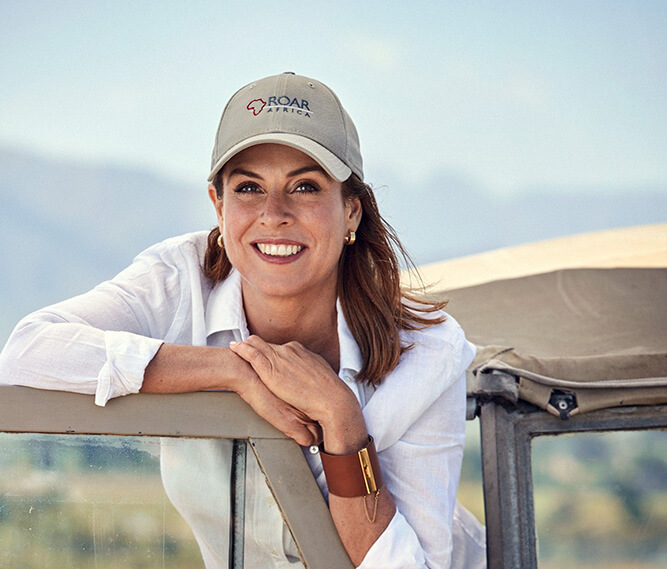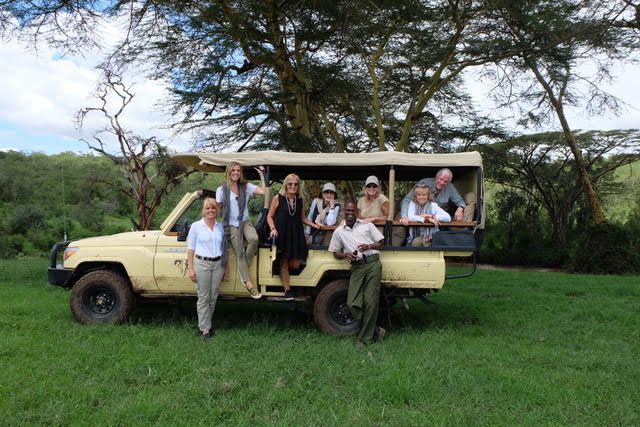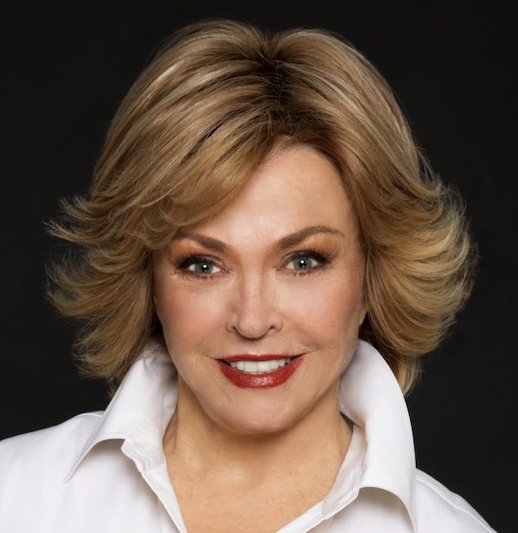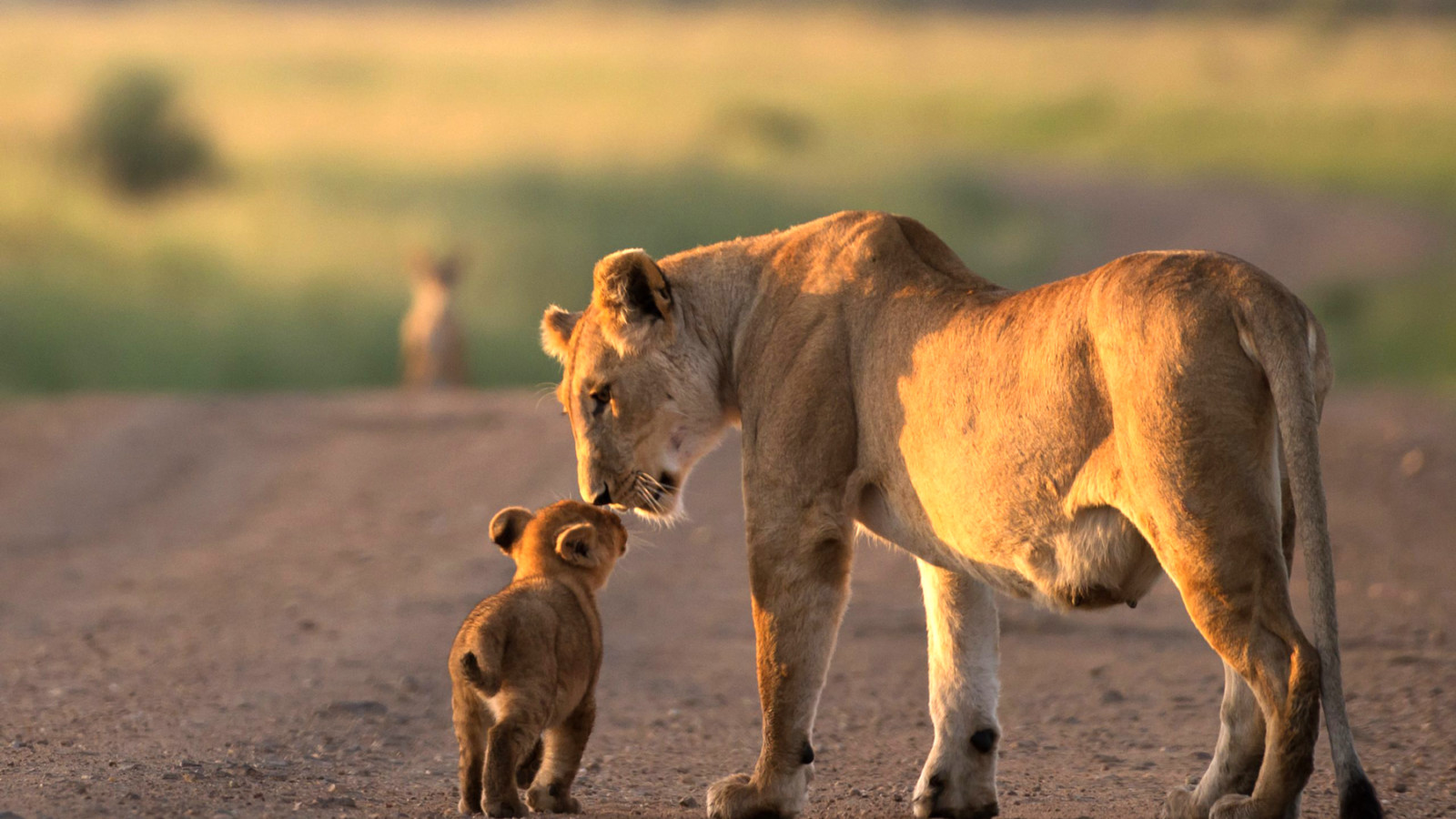The opportunity to travel is a precious gift, providing a roadmap for spiritual discovery, a compass for compassion, and a bridge to humanity. Through travel, we are better equipped to gain perspective into the enormity and meaning of not just our own lives but the lives of others. This depth of experience brings clarity to the daunting question of what it means to be human, whole, renewed, and joyful.
The answer to this question becomes clear when traveling in the wild.

Deborah Calmeyer, the CEO and founder of ROAR AFRICA, knows firsthand the physiological & psychological benefits of spending time in the wild as a prescription for the soul. Growing up in Zimbabwe, Calmeyer has a deep connection to nature. Hers was a childhood laced with experiences up close and personal with wildlife; from swimming with hyenas in the pool, to water skiing on a croc infested lake; to her family’s beloved pet lioness (Carmel) that thought she was a Labrador.
She launched ROAR AFRICA 16 years ago with a vision to curate retreats that harness the power of nature to facilitate deeply spiritual journeys for participants. Over the years, she has gained keen insight into how experiences in the wild can positively impact the human psyche and inspire us to be the best versions of ourselves.
“What has become obvious is that the western world’s obsession with self-improvement, self-optimization and self-indulgence side steps that most sacred and ancient connection — the one between all living things,” says Calmeyer. “I call this ancient connectedness ecological intelligence, and I’ve seen how it can awaken the discovery of peace, purpose and a deep sense of self that is vital to every journey that we create. Those who travel with us come to understand the wonder and acknowledgement of how nature holds the key to our aesthetic, intellectual, cognitive and spiritual satisfaction, and the creation of this shared ethos about the power of the wild to heal and nurture is life-changing,” she adds.
The forthcoming “Into the Wild with David Whyte” retreat in Kenya (February 2023) is just one example of the life-changing experiences that ROAR AFRICA designs. Calmeyer will co-host the journey with world-renowned poet, philosopher, author and speaker David Whyte. Designed to move guests in unexpected ways, the retreat will allow participants to see nature as a portal not just tied to their aesthetic and intellectual well-being but to their cognitive and spiritual satisfaction too. The six-day retreat incorporates the elements — earth, water, fire, air and ether — woven together by Whyte’s poetry and hands-on experts in sound, breath, touch and energy to open up the mind and body.
There is a cathartic shift that happens in the wild that can rewire our own inner landscape and root us to something much bigger than ourselves. Being held in the stillness of expansive natural landscapes enables us to truly absorb time. The silent language of the wild is one of transformation, with the strength to unleash vitality and rediscover ourselves. Humankind is fragile and ripe for this reconnection right now. We really don’t know yet all the invisible effects of the pandemic on humanity, but what we do know is that many of us are depleted and suffering from nature deficit disorder, a term coined by Dr. Richard Louv, author of several books on the subject.

Nature deficit disorder is not a medical diagnosis, but as he says, it’s “a useful term — a metaphor — to describe what many of us believe are the human costs of alienation from nature: a diminished use of the senses, attention difficulties, conditions of obesity, and higher rates of emotional and physical illnesses.” We are spending less time outdoors than human beings did in the past. Research like Dr. Louv’s shows that it’s taking a toll on our health and well-being.
Calmeyer believes that enabling travelers to experience the world’s truly untouched, remote places first-hand is essential to the betterment of humanity.
“So few people realize that we are nothing without the wild. It is here that we can breathe, just be, absorb time, and lose ourselves,” says Calmeyer. “Our senses are activated; we feel the impact of silence; are moved by the change in visual field; and appreciate stillness. Stillness is a resource. When we stop moving, we can be deeply moved, and it is in beautiful places that we are our best selves. This is the gift that the wilderness gives us when we’re given the space to be in it. A gentle appreciation and gratitude for a way to make sense of the world and how we fit into it, fueling a further awakening to happen within us.”
When I reflect on my own travels to Africa, I’m reminded of something that Dr. Ian McCallum, South Africa’s highly respected psychiatrist, poet, writer and conservationist said to our group during our retreat.
“There is no such thing as human nature. There is just nature,” he told us.
Image credits: 1/ A lioness and her cub (ROAR AFRICA) 2/ Deborah Calmeyer (ROAR AFRICA) 3/ Group photo from the 2018 Roar & Restore Retreat at the Segera game preserve. We spent a week in the beautiful landscape of Northern Kenya in the Laikipia Hills region, taking daily game drives through the million acres, observing and feeling the natural rhythms, sounds and sightings of Africa’s big animals
For several years now, I have served on the board of Roar Africa, the top-rated Africa-based, women-owned and -led company that offers these specially designed experiences that combine Africa’s best safaris with adventures not included on the usual tourist itineraries. These are experiences that are designed with purpose to go deeper, connecting participants with local communities and good work. Some of the proceeds from the Learning Journeys go towards supporting the work we were privileged to experience firsthand.


